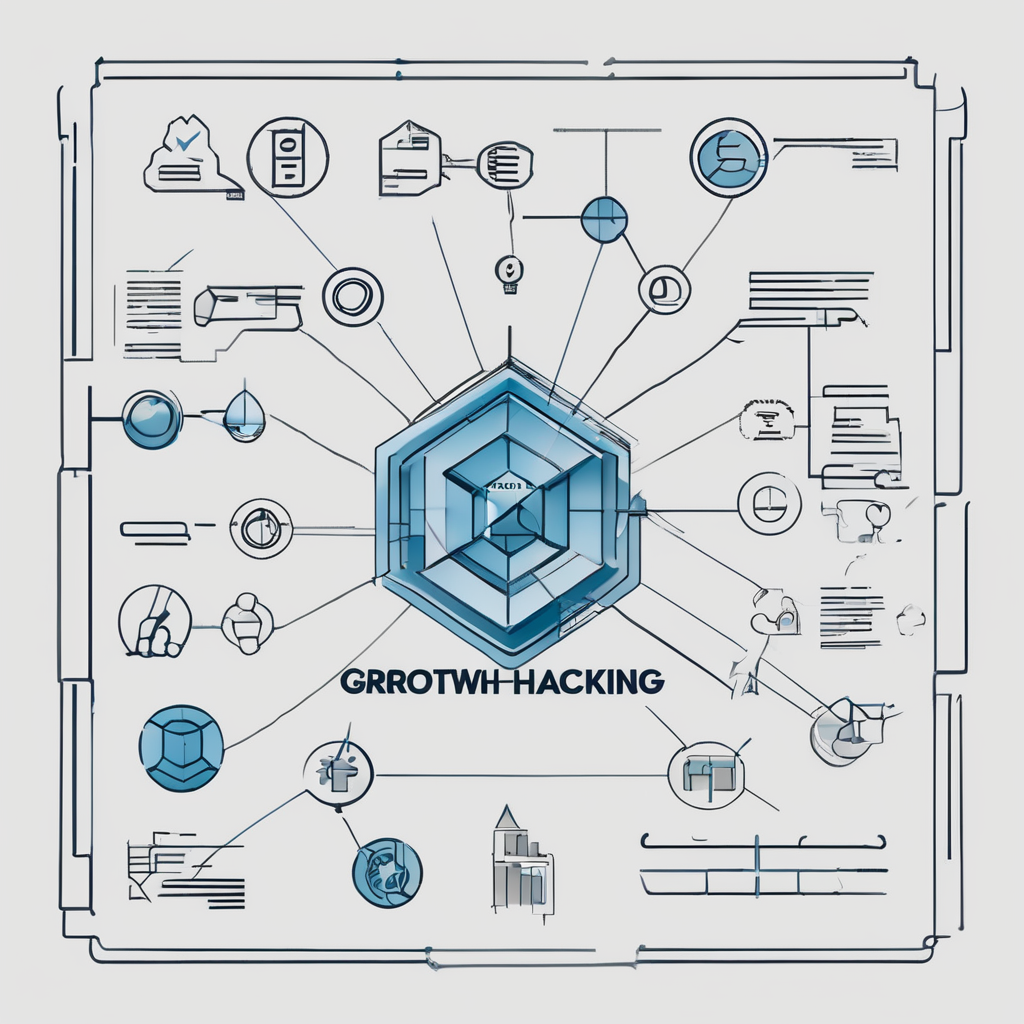Launching a non-profit in the UK focused on renewable energy can be a transformative endeavor. This guide provides essential steps and insights for aspiring founders, from securing funding to navigating regulatory requirements. Learn how to build partnerships that amplify your impact and explore innovative approaches to making sustainable energy accessible for all. Whether you’re passionate about combating climate change or fostering community resilience, your initiative can inspire change. Ready to make a difference? Let’s get started!
Understanding Non-Profit Organizations in the UK
Non-profit organizations in the UK are entities that operate primarily to serve a social or environmental mission rather than to generate profit for owners or shareholders. These organizations reinvest any surplus revenue back into their cause, ensuring that their mission remains the primary focus. The UK non-profit model is distinct in its emphasis on community benefit and accountability, which often involves a diverse range of stakeholders in decision-making processes.
Also to read : Starting a UK Urban Planning Consultancy: Your Guide to Mastering Zoning Regulations
Key Differences Between Non-Profits and For-Profits
One of the main differences between non-profits and for-profits is their financial objectives. While for-profit companies aim to maximise profits for distribution to shareholders, non-profits channel any profits back into their mission-related activities. Additionally, non-profits often benefit from tax exemptions and can receive donations, which are typically tax-deductible for the donor. This financial model allows non-profits to focus on long-term impact rather than short-term gains.
Overview of the Renewable Energy Sector in the UK
The renewable energy sector in the UK has seen significant growth, with many non-profit organizations playing a critical role. These entities work to promote sustainable energy solutions, often focusing on community-based projects that encourage local involvement and education. By prioritising environmental benefits over financial returns, renewable energy non-profits contribute to the UK’s transition towards a more sustainable energy future.
Also to see : Mastering the UK Environmental Assessment Journey: A Guide to Launching Your Sustainable Hotel
Legal Framework for Establishing a Non-Profit
Establishing a non-profit in the UK involves meeting specific legal requirements. These include selecting an appropriate governance structure, such as a charitable trust, unincorporated association, or a charitable company. Each structure has distinct legal implications and operational flexibility, impacting how the non-profit can function.
Charity Registration and Governance Structure
To register as a charity, organizations must apply to the Charity Commission, demonstrating a clear charitable purpose and public benefit. This process involves providing detailed information about the non-profit’s aims, activities, and governance structure. Ensuring compliance with the Charity Commission’s regulations is crucial for maintaining charitable status.
Governance is a cornerstone of non-profit operations. Effective governance ensures accountability and transparency, crucial for maintaining public trust. A well-defined governance structure typically includes a board of trustees responsible for overseeing the organization’s activities and ensuring adherence to its mission.
Compliance with legal obligations is essential for non-profits to operate effectively and sustainably. This includes adhering to financial reporting requirements and ensuring that all activities align with the stated charitable objectives. By understanding and implementing these legal frameworks, non-profits can focus on their mission while maintaining regulatory compliance.
Funding Options for Renewable Energy Non-Profits
Navigating the landscape of funding sources is crucial for renewable energy non-profits aiming to sustain and expand their initiatives. These organizations have access to a variety of funding options, each with its own set of advantages and challenges.
One prominent avenue is securing grants. Many governmental and private entities offer grants specifically for renewable energy projects. To apply successfully, non-profits must present a detailed proposal outlining the project’s objectives, expected impact, and financial requirements. Demonstrating a clear alignment with the grantor’s mission can significantly enhance the chances of approval.
In addition to grants, crowdfunding has emerged as a powerful tool for community-driven initiatives. Platforms like Kickstarter or GoFundMe enable non-profits to reach a broad audience, engaging supporters who are passionate about sustainable energy. Crafting a compelling campaign narrative and offering tangible rewards can boost participation and funding.
By leveraging these funding sources, renewable energy non-profits can focus on their mission, driving sustainable change while maintaining financial stability. Understanding and effectively utilising these options ensures that non-profits can continue to innovate and contribute to the UK’s renewable energy goals.
Building Partnerships and Collaborations
In the renewable energy sector, forming strategic partnerships is essential for non-profits aiming to amplify their impact. Identifying potential partners involves analysing organisations and businesses that share similar environmental goals. These partnerships can range from collaborations with local governments to alliances with private companies, each offering unique benefits.
Working with local governments can provide non-profits with access to resources, regulatory support, and funding opportunities. Such collaborations can streamline project implementation and foster community acceptance. Similarly, partnering with businesses can bring technological expertise and financial investment, crucial for scaling renewable initiatives.
Stakeholder engagement is a critical component of successful collaborations. Effective engagement strategies include transparent communication, regular updates, and inclusive decision-making processes. By involving stakeholders from the outset, non-profits can build trust and ensure that projects align with community needs and expectations.
To maximise the benefits of these collaboration opportunities, non-profits should focus on:
- Establishing clear objectives and roles for each partner
- Maintaining open lines of communication
- Regularly evaluating partnership outcomes
By leveraging these strategies, renewable energy non-profits can enhance their operational capacity, drive innovation, and contribute more effectively to sustainable energy goals.
Developing a Sustainable Business Model
Creating a sustainable business model for non-profits, especially in the renewable energy sector, involves several key components. At its core, a sustainable business model should integrate sustainability strategies that align with the organization’s mission and long-term goals. This includes identifying innovative revenue generation methods to ensure financial viability.
For renewable energy initiatives, exploring diverse revenue streams is crucial. Non-profits can consider options like selling renewable energy credits or implementing community solar projects. These strategies not only generate revenue but also reinforce the organization’s commitment to sustainability. Additionally, partnerships with businesses can provide access to new markets and technological advancements.
Measuring impact and sustainability is vital. Non-profits must establish metrics to evaluate their initiatives’ effectiveness and environmental benefits. This process involves tracking energy savings, carbon reduction, and community engagement outcomes. By consistently assessing these factors, organizations can refine their strategies and demonstrate their value to stakeholders.
In summary, a sustainable business model for non-profits should focus on:
- Integrating sustainability strategies
- Diversifying revenue generation methods
- Measuring and showcasing impact
By adopting these approaches, non-profits can ensure their initiatives remain impactful and financially sustainable.
Community Engagement and Outreach Strategies
Fostering community engagement is vital for non-profits aiming to make a meaningful impact in the renewable energy sector. By actively involving the community, organizations can ensure that their initiatives are both relevant and sustainable. Effective outreach programs are crucial in spreading awareness about renewable energy benefits and encouraging local participation.
To raise awareness, non-profits can implement awareness campaigns tailored to different community segments. These campaigns might include educational workshops, informational sessions, and interactive events designed to inform and inspire action. By utilising diverse communication channels, such as social media, local newspapers, and community events, non-profits can maximise their reach and impact.
Building a robust volunteer network is another essential strategy. Volunteers can act as ambassadors, spreading the word and advocating for renewable energy projects within their communities. Engaging volunteers not only amplifies the organization’s voice but also fosters a sense of ownership and commitment among community members.
Key elements of successful community engagement include:
- Tailoring messages to resonate with local values and concerns
- Providing platforms for community feedback and involvement
- Recognising and celebrating community contributions
By prioritising community engagement and developing comprehensive outreach strategies, non-profits can enhance their effectiveness and drive sustainable change.
Case Studies of Successful Renewable Energy Non-Profits
Exploring case studies of successful renewable energy non-profits in the UK offers valuable insights into effective operational strategies. These organizations exemplify best practices that aspiring non-profit founders can emulate.
One notable example is the Centre for Alternative Technology (CAT). This organization has pioneered sustainable energy solutions, focusing on education and community involvement. By integrating educational programs with practical applications, CAT has successfully raised awareness and inspired action across the UK.
Another success story is the SolarAid initiative. SolarAid has effectively tackled energy poverty by distributing solar lights in underserved communities. Their model combines philanthropy with social enterprise principles, creating a sustainable impact while maintaining financial viability. This approach demonstrates the power of combining mission-driven goals with innovative business strategies.
Lessons learned from these initiatives include the importance of:
- Community involvement to ensure project relevance and sustainability
- Developing diverse funding streams to maintain financial health
- Adapting to changing technological and environmental landscapes
By studying these successful initiatives, non-profit founders can gain a deeper understanding of the best practices necessary to thrive in the renewable energy sector. Emulating these strategies can help new non-profits make a meaningful impact while ensuring long-term sustainability.
Resources and Tools for Non-Profit Founders
Starting a non-profit organization requires access to a variety of resources and tools to ensure success. Essential resources include guides on legal frameworks, financial management, and strategic planning. These resources provide foundational knowledge to navigate the complexities of establishing a non-profit in the UK.
For effective project management, non-profits can utilise tools like Trello or Asana. These platforms help organize tasks, set deadlines, and facilitate team collaboration. Additionally, fundraising tools such as Donorbox or JustGiving streamline donation processes and enhance donor engagement.
Building a strong support network is crucial for non-profit founders. Organizations like the National Council for Voluntary Organisations (NCVO) offer valuable support, including training, advocacy, and networking opportunities. Engaging with these networks provides founders with insights, mentorship, and collaboration possibilities.
To summarise, non-profit founders should focus on:
- Leveraging online tools for efficient project management and fundraising
- Accessing comprehensive resources for legal and financial guidance
- Connecting with support networks to gain industry insights and mentorship
By utilising these resources and tools, non-profit founders can effectively navigate the challenges of starting and running a successful organization.
Best Practices for Long-term Success
For non-profit organizations aiming for long-term success, adopting effective non-profit management practices is crucial. Operational efficiency plays a significant role, as it ensures resources are optimally used to achieve the organization’s mission. Key management practices include regular financial audits, strategic planning, and transparent governance. These measures promote accountability and build trust with stakeholders.
Adaptability and innovation are essential for sustaining operations in a dynamic environment. Non-profits should be open to adopting new technologies and methods to enhance their impact. For instance, integrating digital tools can streamline processes and improve communication with donors and volunteers. Embracing change enables organizations to remain relevant and responsive to community needs.
To ensure long-term success, non-profits must focus on strategies that enhance their community impact. This involves setting clear goals, measuring outcomes, and continuously refining approaches based on feedback. Building strong relationships with community members and other stakeholders fosters collaboration and support, which are vital for sustained impact.
In summary, effective non-profit management involves:
- Ensuring operational efficiency through strategic practices
- Embracing adaptability and innovation in operations
- Implementing strategies that guarantee long-term success and community benefit
By prioritising these practices, non-profits can achieve enduring success and make a lasting difference.






